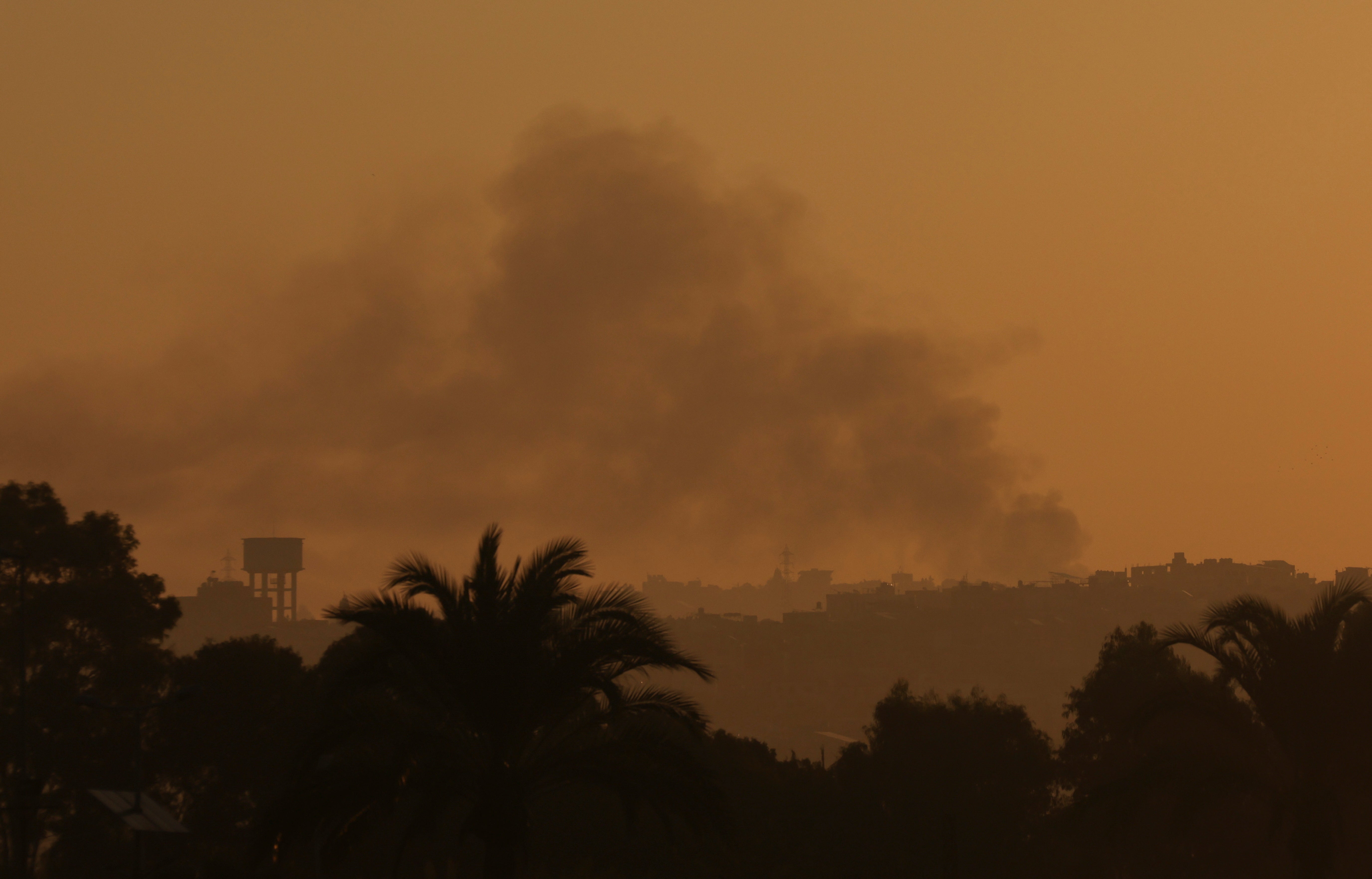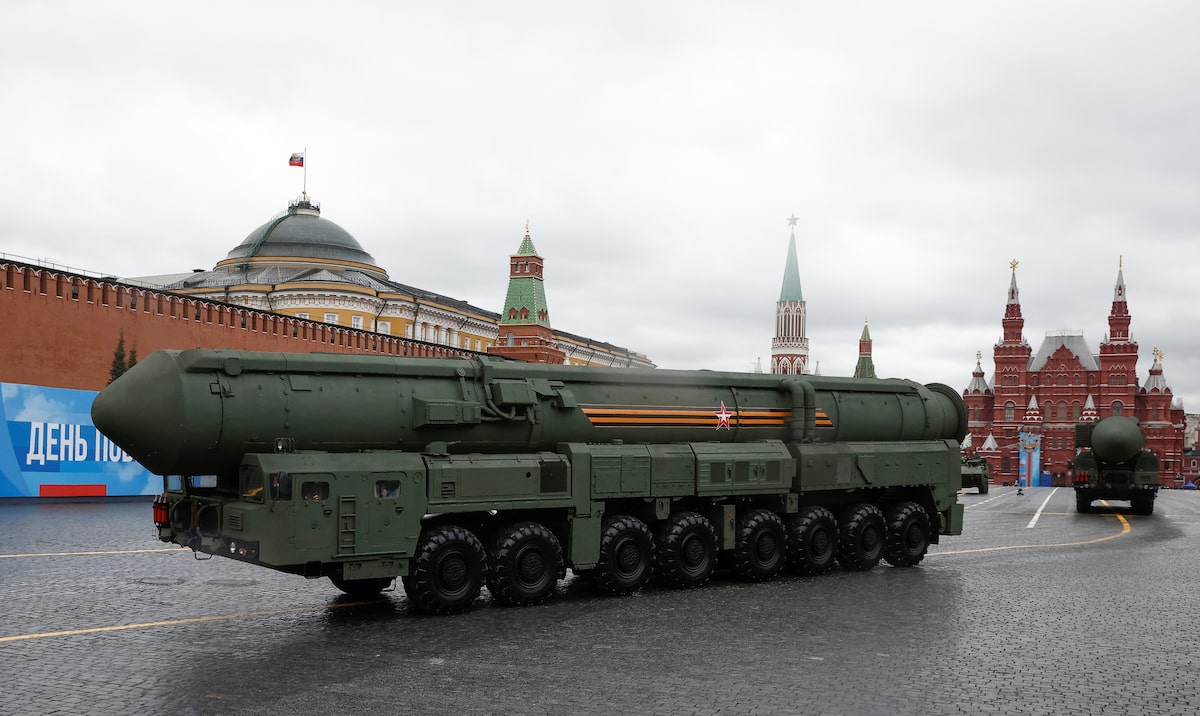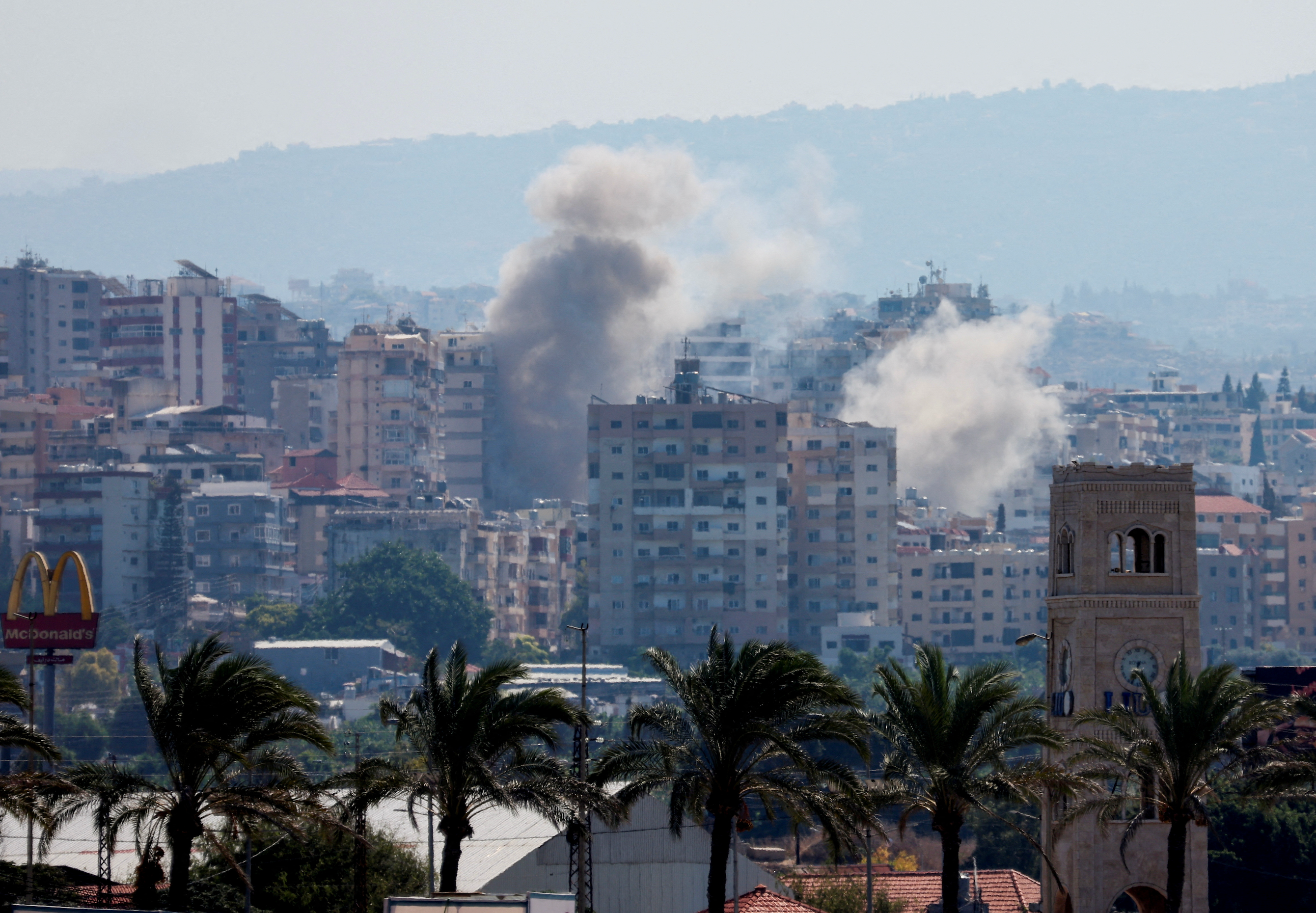
Lebanon says Israeli airstrikes kill at least 492, residents flee from south
PHOTO CAPTION: Smoke billows over southern Lebanon following Israeli strikes, amid ongoing cross-border hostilities between Hezbollah and Israeli forces, as seen from Tyre, southern Lebanon September 24, 2024 REUTERS/Aziz Taher
By Maayan Lubell, Maya Gebeily and Timour Azhari
JERUSALEM/BEIRUT (Reuters) -Israel's military said it launched airstrikes against Hezbollah sites in Lebanon on Monday, which Lebanese authorities said had killed 492 people and sent tens of thousands fleeing for safety in the country's deadliest day in decades.
After some of the heaviest cross-border exchanges of fire since hostilities flared in October, Israel warned people in Lebanon to evacuate areas where it said the armed movement was storing weapons.
Israeli Prime Minister Benjamin Netanyahu sent a short video statement addressed to the Lebanese people.
"Israel's war is not with you, it's with Hezbollah. For too long Hezbollah has been using you as human shields," he said.
Families from south Lebanon loaded cars, vans and trucks with belongings and people, sometimes multiple generations in one vehicle. As bombs rained down, children crammed onto parents' laps and suitcases were tied to car roofs.
Highways north were gridlocked. "I grabbed all the important papers and we got out. Strikes all around us. It was terrifying," said Abed Afou, who was with his family, including three sons aged 6 to 13 and several other relatives. They sat in traffic as it crawled north.
They did not know where they would stay, he said, but just wanted to reach Beirut.
Nasser Yassin, the Lebanese minister coordinating the crisis response, told Reuters 89 temporary shelters in schools and other facilities had been activated, with capacity for more than 26,000 people as civilians fled "Israeli atrocities".
After almost a year of war against Hamas in Gaza on its southern border, Israel is shifting its focus to the northern frontier, where Iran-backed Hezbollah has been firing rockets into Israel in support of Hamas, also backed by Iran.
Israel's military said it struck Hezbollah in Lebanon's south, east and north, including "launchers, command posts and terrorist infrastructure." The Israeli Air Force struck about 1,600 Hezbollah targets in southern Lebanon and the Bekaa Valley, it said.
Lebanon's health ministry said at least 492 people had been killed, including 35 children, and 1,645 wounded. One Lebanese official said it was Lebanon's highest daily death toll from violence since the 1975-1990 civil war.
The fighting has raised fears that the U.S., Israel's close ally, and Iran will be sucked into a wider war.
Saudi Arabia expressed deep concern on Monday and urged all parties to exercise restraint, state news agency SPA reported.
A senior U.S. State Department official said the United States did not support a cross-border escalation between Israel and Hezbollah and that Washington was going to discuss "concrete ideas" with allies and partners to prevent the war from broadening.
Israeli officials have said the recent uptick in airstrikes on Hezbollah targets in Lebanon is designed to force the Iran-aligned group to agree to a diplomatic solution.
The U.S. official, briefing reporters in New York on condition of anonymity, pushed back on the Israeli position, saying the Biden administration was focused on "reducing tensions ... and breaking the cycle of strike-counterstrike."
Also in New York, Iranian President Masoud Pezeshkian said Israel wanted to drag the Middle East into a full-blown war by provoking Iran to join the Israel-Hezbollah conflict.
"It is Israel that seeks to create this all-out conflict," he told journalists after his arrival to attend the U.N. General Assembly, saying the consequences of such instability would be irreversible.
CONFLICT 'PEAK'
Israeli Defence Minister Yoav Gallant said Monday marked a "significant peak" in the nearly year-long conflict.
"On this day we have taken out of order tens of thousands of rockets and precise munition. What Hezbollah has built over a period of 20 years since the second Lebanon War is in fact being destroyed by the IDF," he said in a statement, referring to the Israel Defense Forces.
On Monday evening Israel launched a strike on Beirut's southern suburbs aimed at senior Hezbollah leader Ali Karaki, the head of the southern front. Hezbollah later said he was safe and had moved to a secure location.
But Hamas' armed wing said its field commander in southern Lebanon, Mahmoud al Nader, was killed in an Israeli air strike.
Rear Admiral Daniel Hagari said in a statement that Israeli strikes had hit long-range cruise missiles, heavyweight rockets, short-range rockets and explosive drones.
In response, Hezbollah said it launched dozens of missiles at a military base in northern Israel.
Sirens warning of Hezbollah rocket fire sounded across northern Israel, including in the port city of Haifa, and in the northern part of the occupied West Bank, the military said.
About 60,000 people have been evacuated from northern Israel because of the cross-border fighting. Gallant said the campaign would continue until the residents had returned to their homes. Hezbollah for its part has vowed to fight until there is a ceasefire in Gaza.
Hagari said Hezbollah put weaponry "inside Lebanese villages and civilian homes, and intended to fire them toward civilians in Israel while endangering the Lebanese civilian population."
Hezbollah has not commented on the assertion that it has hidden weapons in houses, which Reuters could not independently verify, but it has said it does not place military infrastructure near civilians.
The strikes have redoubled the pressure on the group, which last week suffered heavy losses when thousands of pagers and walkie-talkies used by its members exploded. The operation was widely attributed to Israel, which has not confirmed nor denied responsibility.
The foreign ministers of the Group of Seven major democracies warned that the Middle East risked being dragged into a broader conflict that no country would gain from, according to a statement released after meeting on the sidelines of the UN General Assembly.
(Reporting by James Mackenzie and Ari Rabinovitch in Jerusalem, Tom Perry, Maya Gebeily, Abdelaziz Boumzar, Timour Azhari, Laila Bassam and Emilie Madi in Beirut, Jaidaa Taha, Adam Makary and Enas Alashry in Cairo and Humeyra Pamuk and Simon Lewis in New York; Writing by Michael Georgy, Cynthia Osterman, Daphne Psaledakis and Stephen Coates; Editing by William Maclean, Ros Russell and Rosalba O'Brien)










